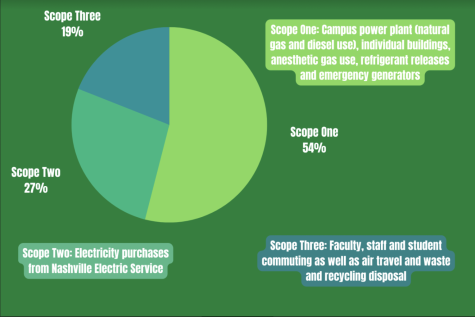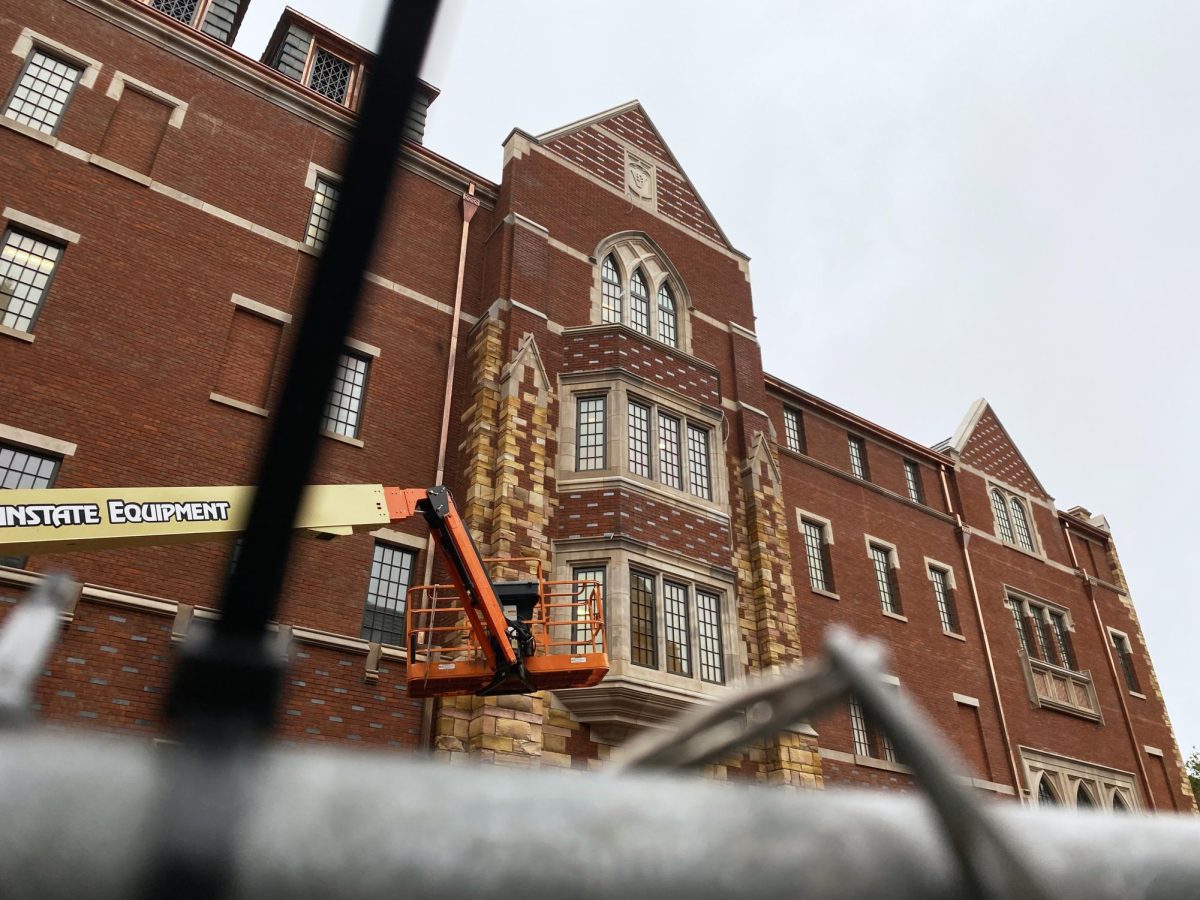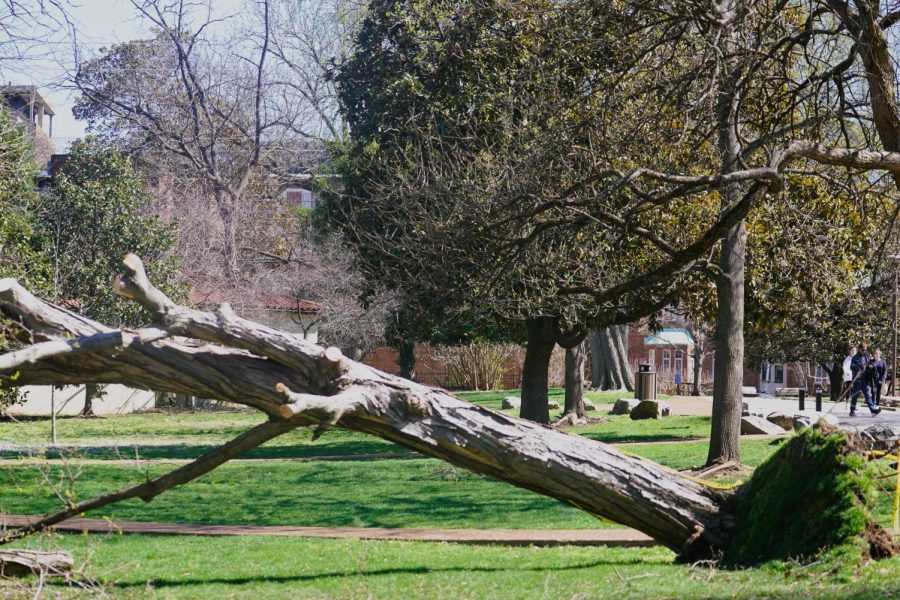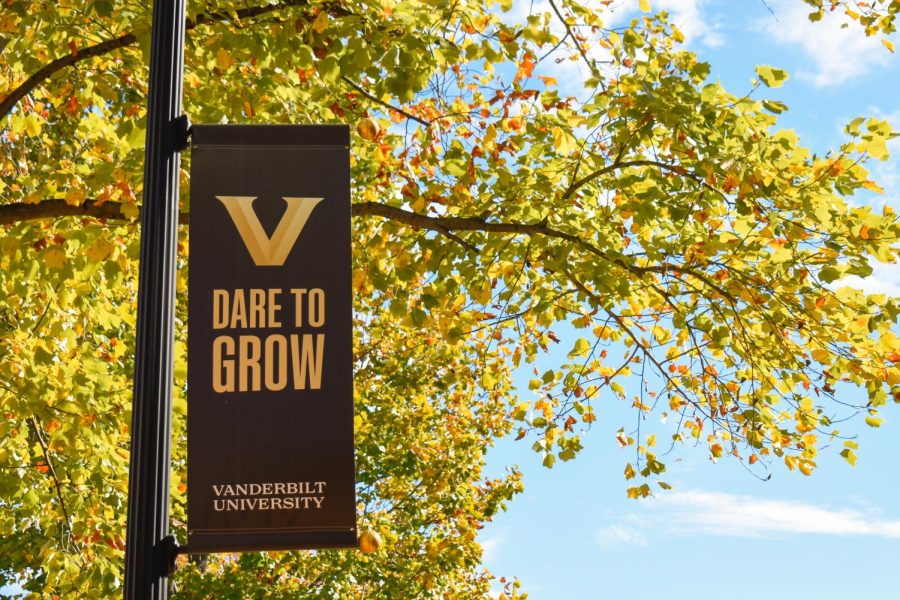FutureVU’s recently released fiscal year 2021-22’s sustainability report shows a 19% overall decrease in greenhouse gas emissions since fiscal year 2019-20. The annual study reported a 6% increase in greenhouse gas emissions since fiscal year 2020-21, which was attributed to reduced campus operations during COVID-19 in the report.
The report also cites numerous accolades the university has been awarded for its sustainability and campus environment. Vanderbilt earned the 2021 Governor’s Environmental Stewardship Award and the Princeton Review ranked Vanderbilt seventh out of 713 universities for campus sustainability. Vanderbilt also earned a place on The Princeton Review’s Green Honor Roll, which consists of the 31 universities that received the highest score on the Princeton Review’s survey. The survey accounts for greenhouse gas emissions, waste reduction, food offerings, public transportation offerings, number of employees dedicated to sustainability and more.
“Achieving these important sustainable milestones is a result of many individuals and organizations throughout the university all working together,” a representative of the Office of Environmental Health, Safety and Sustainability said in an email to The Hustler. “These efforts have truly been collaborative, involving extensive discussion and work performed by many students, faculty and staff, as well as the development of strategic partnerships mentioned throughout the annual report.”
Senior Andrei Olaru, president of Student Promoting Environmental Awareness and Responsibility (SPEAR), stated in a message to The Hustler that the work of the sustainability office is admirable.
“Vanderbilt’s sustainability efforts led by Vice Chancellor of Administration Eric Kopstain are always notable improvements stemming from the work of a dedicated and altruistic team. I regularly meet with some of these administrators and genuinely admire them,” Olaru said in a message to The Hustler.
Sustainability initiatives
FutureVU divides greenhouse gas emissions into three scopes. Scope 1 accounted for 54% of emissions—on-campus power plant (natural gas and diesel use), individual buildings, anesthetic gas use, refrigerant releases and emergency generators. Scope 2 accounted for 27% and only included electricity purchases from Nashville Electric Service. Scope 3 accounted for 19%—faculty, staff and student commutes as well as air travel, waste and recycling disposal.

(Alexa White)
According to the report, the university has been considered carbon neutral for the past two fiscal years due to its partnership with Climate Vault. A representative from the Office of Environmental Health, Safety and Sustainability said the university engages with Climate Vault in the cap-and-trade market, meaning that Vanderbilt purchases “pollution-allowance permits” to offset its emissions. Each permit it purchases removes one from the market and, thereby, reduces total emissions globally.
The Office of Environmental Health, Safety and Sustainability calculates the university’s carbon footprint by converting the emissions of six common greenhouse gasses. In total, Vanderbilt emitted 128,058 metric tons of carbon dioxide equivalents this past fiscal year.
In a message to The Hustler, a representative from the Office of Environmental Health, Safety and Sustainability said the university aims to reduce Scope 2 emissions in the near future by opening a solar farm in Bedford County, Tennessee. The farm, named the Vanderbilt 1 Solar Farm, was developed as part of FutureVU’s Green Invest partnership with the Tennessee Valley Authority, Nashville Electric Service and Silicon Ranch.
“This project is expected to come online within the next few months, and the renewable energy credits (RECs) that result will offset approximately 70% of Vanderbilt’s Scope 2 purchased electricity emissions, or indirect greenhouse gas emissions,” the representative said. “In addition, a second Green Invest project in Tullahoma, Tennessee, is planned to open at a later time to offset the remaining 30% of Scope 2 purchased electricity emissions.”
The office also explained that it has measures in place to continue decreasing carbon emissions in Scope 3 through MoveVU, the university’s transportation and mobility plan. The report outlined goals to reduce the amount of people that commute to work alone from 76.5% to 55% in the next four years.
“Our MoveVU program provides commuters with more options to choose from when making commuting decisions and includes options that provide financial incentives, provide greater flexibility that matches an individual’s lifestyle, reduces stress from having to endure lengthy commutes and improves their health by encouraging walking and biking,” the representative said.
Additionally, the report details that Vanderbilt’s Zero Waste Advisory Committee hopes to reduce total waste generated by 30% by 2030 and divert 90% of waste from landfills. The committee plans to end single-use plastic purchases within the university and expand food waste collection to include all dining halls by 2025. Single-use plastic bottles are no longer sold at athletic events, dining facilities or Munchie Marts, and they will soon no longer be available in vending machines. They are being replaced by reusable and recyclable aluminum bottles.
According to the report, composting, reusable containers for all you can eat dining halls and food donation programs also help minimize overall food waste. Vanderbilt also has continued its recycling programs for non-traditional recyclable materials such as construction and demolition debris, toner cartridges, batteries, light bulbs, scrap metal and electronics. Waste related emissions dropped 20% since 2020-21 and are higher than the 2019-20 year by 6%. The report attributes the substantial waste reduction from last academic year to more waste being generated during COVID-19.
“It is critical to improve the environment around us in order to promote and protect the health, safety and wellness of our community, whether it be the Vanderbilt community or broader community,” the representative said.


















